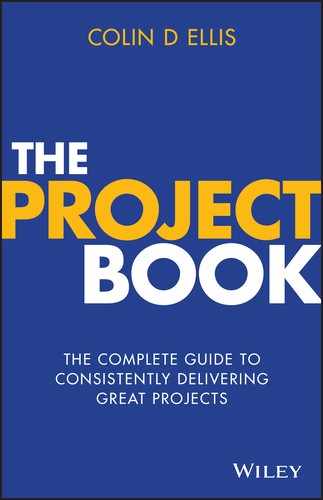CHAPTER 57
BUILD TRUST
‘The secret of life is honesty and fair dealing,’ Groucho Marx declared. ‘If you can fake that, you’ve got it made.’ Of course, it’s very hard to do that all the time — trust me, I’ve tried!
What makes you trust this statement? Was it because I asked you to trust me? Or maybe you’ve met me! Trust is a word we use a lot. For most of us it’s a core value that we uphold in both our personal and our working lives.
In a recent Atlassian survey on the impact of Artificial Intelligence on teamwork, the statistic that caught my eye concerned trust. According to the survey, 78 per cent of those interviewed said they didn’t trust their teammates, while an even larger proportion — 86 per cent — didn’t fully trust a teammate to adapt to changing situations. A 2018 PwC CEO survey found that one in five respondents had ‘extreme concern’ about the lack of trust in business.
These are pretty startling statistics when you consider that our workplaces, projects and relationships depend on shared trust. So where did all the trust go?
Too often we think of trust as a given. ‘I’ve been in this role for 15 years, so they should trust my judgement.’ ‘The plan says it will be delivered by next Friday, so they should just trust me on that.’ And so on. Yet, author Simon Sinek says, ‘A completed checklist doesn’t guarantee trust’. And he’s right. Trust must be earned.
Trust depends on having confidence in a person that they will deliver. It is a product of history, experience, honesty and the relationship we have with the person. As a sponsor, if you want to earn the team’s trust you have to work hard for it. You have to behave consistently well, provide energy and do things when you say you will.
Back in the 1980s, Ratners jewellers were a dominant retail force on the English high street. The chain sold good-quality products at great prices. We believed the company’s marketing and trusted its guarantees on quality.
Then in 1991, owner Gerald Ratner stood up on stage and told an audience of business leaders, ‘People say, “How can you sell this [decanter] for such a low price?” and I say, “Because it’s total crap”’. As if that wasn’t bad enough, he went on to add that his stores’ earrings were cheaper than a Marks and Spencer prawn sandwich, but ‘wouldn’t last as long’.
For the reward of a few cheap laughs, Ratner completely undermined the trust customers had invested in his brand and almost overnight wiped £500 million off the value of the company. Within two years he was fired by the new chairman. And ‘doing a Ratner’ became a byword for making a fatal public communication gaffe.
Each organisation has a duty to act honestly, ethically and responsibly in order to gain the trust of its employees. By doing this, they create the right kind of environment for staff to be the best version of themselves and to work collectively to achieve their goals. In projects, this starts and ends with the sponsor.
When the team trusts you, they’re much more likely to be loyal, challenge outdated ideals and put in extra effort to get the work completed. They’re also more likely to come up with ideas to further enhance the project and the reputations of all of those working on it.
In her book The Creativity Formula, Dr Amantha Imber suggests, ‘Employees who trust that their employers are looking after their best interests are much more inclined to offer ideas and engage in other innovative behaviours’. In Uncommon Sense, Common Nonsense, Jules Goddard and Tony Eccles go one step further: ‘If senior executives put their career on the line — for example — by making jobs and rewards contingent upon the success of a change program, they will earn the trust of their people. Otherwise it’s just posturing’.
One organisation I worked for insisted on keeping certain projects a secret, citing ‘sensitivities’ and ‘delicacies’. In reality, what they were saying to staff by doing this was ‘I don’t trust you with this information’. I was able to get them to change their approach on the grounds that everyone was talking about the projects anyway!
To collaborate successfully to achieve project or organisation goals, trust is critical. Trust that you’ll all uphold the behaviours you’ve agreed on. Trust that you’ll deliver on your promises. Trust that you’ll listen to and respect new ideas. Trust that you’ll be honest at all times. Trust that you’ll help each other and say only nice things behind people’s backs. When you act in this way, collaboration is high and so is performance. When you don’t, targets are missed, great employees leave and stakeholder confidence in your project or your ability to deliver it dissipates or is lost altogether.
Honesty and fair dealing should never be faked. You can trust me on that.
